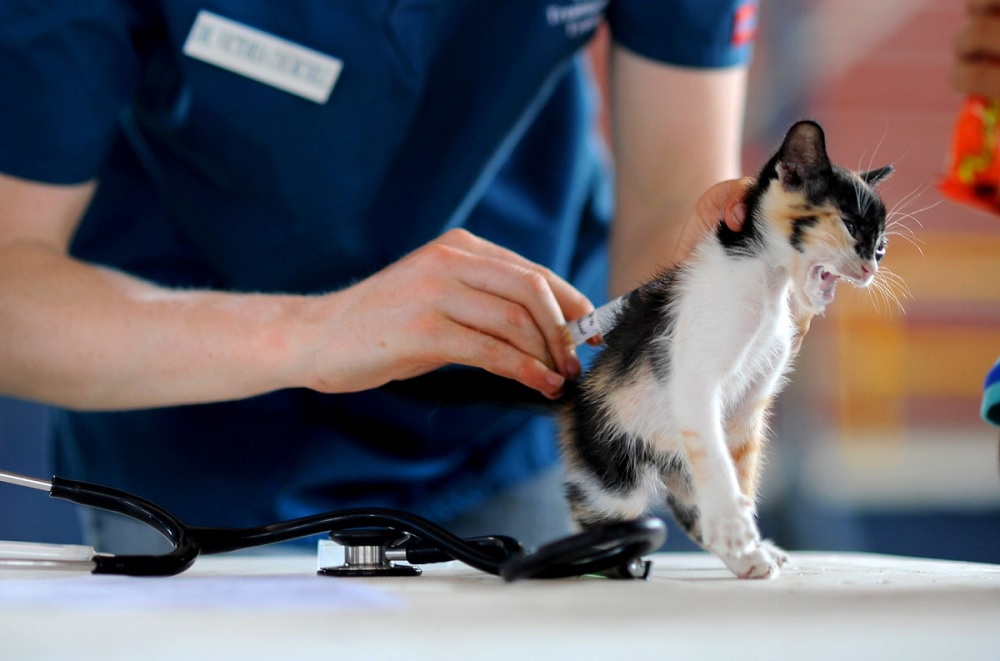Rising vet fees leave pet owners facing tough choices

Rachel Williams, Reader in Human Resource Management, Cardiff University
If you’re a pet owner, you may have noticed increases in your vet bills in recent years. The average cost of pet booster injections increased by 48% in the UK between 2020 and early 2024, while pet insurance prices rose by 21% in the year to March. Many families are struggling to afford care for their pets.
But this situation isn’t just about rising prices – it’s about how these changes are affecting the people at the heart of veterinary care. For the past three years, I’ve been studying the experiences of early-career vets and what I’ve found is unsettling.
The vets I spoke to described an emotional and ethical struggle that goes far beyond routine pet care. They’re increasingly having to balance the cost of treatment with the welfare of animals – sometimes being forced to euthanise otherwise healthy pets because the owners can’t afford treatment.
Concerns about veterinary fees are also receiving national attention. The Competition and Markets Authority (CMA) is conducting an investigation into the sector, citing a lack of transparency in pricing and the dominance of corporate ownership. For example, 60% of UK vet practices are owned by just six companies, including VetPartners, MediVet and IVC.
Strikes
Strikes at branches of Valley Vets in south Wales – the first in the UK veterinary sector – have also drawn attention to the issue of pay and the rising cost of treatment. Staff at the practice, owned by York-based VetPartners, are demanding a fair wage and pushing back against fee hikes that are pricing owners out of care.
For vets, the stakes are high. Many enter the profession out of a love for animals, but increasing costs force them into difficult conversations with owners who can’t afford the necessary treatment.
One early-career vet I interviewed described treating a four-month-old puppy with a broken leg. The owners couldn’t pay for surgery and had to make the heartbreaking decision to put the dog down. This not only caused distress to the family but also to the veterinary team performing the procedure.
Prevention
Veterinary practices are increasingly promoting preventative care to help avoid costly treatment down the road. But some pet owners view this merely as an attempt to maximise profit.
The Royal College of Veterinary Surgeons (RCVS), which regulates the sector, has expressed concern about a rise in abusive behaviour towards vets. The RCVS is encouraging owners to raise fee issues with practice owners rather than individual vets. Many practices have started removing abusive clients from their client lists, though some vets I spoke to were unhappy that abusive clients were allowed to return.

Vet students are taught how to discuss costs with clients. For many new vets, however, these conversations are nerve-wracking, particularly when charges are high. Several vets described how they “forgot” to charge for items or charged reduced amounts when they believed the fees were too high. In some cases, the vets believed that managers chose not to notice, whereas others were criticised.
But as vets gained experience, they also began to charge more accurately, partly due to valuing their training and expertise. They also realised that if they reduced a bill, clients were more likely to complain if the next vet charged correctly.
Emotionally attached
I found evidence that over time some vets became less emotionally attached to their patients, particularly when they had no long-term relationship with the owner. They always wanted to reduce suffering and provide the best care. At the same time, though, they were exasperated at owners who acquired pets without investigating future costs or who failed to set money aside for emergencies.
Some also expressed frustration at the owners of their practices imposing large fee increases. They described being ignored when warning managers that further fee increases would lead to a reduction in clients, and vindicated when clients left and associated income reduced.
The CMA review could potentially reshape the veterinary sector, introducing greater price transparency and competition. The RCVS has welcomed the investigation, seeing it as an opportunity for much needed legislative reform.
It is also seeking to extend its regulatory oversight to entire veterinary practices, not just individual vets and nurses. But it has warned the CMA to be cautious of breaking up businesses as this may lead to the closure of practices and leave pet owners without access to veterinary care.
Crossroads
The veterinary profession is at a crossroads. Rising costs, recruitment and retention challenges, as well as increasing emotional burnout are driving many vets to leave the profession. Meanwhile, pet owners are left struggling with tough decisions about how much care they can afford for their beloved animals.
There are no easy answers. Teaching veterinary students how to offer treatment options that fit different budgets could help reduce the emotional burden on both vets and owners. Addressing vet retention through manageable working hours, supportive workplaces and fair salaries may also reduce pressures.
Transparent pricing and educating owners about the real costs of pet care may help to enable more informed decisions. And giving vets a say in business and pricing decisions could help practices balance financial sustainability with compassionate animal care.
This article was first published on The Conversation
![]()
Support our Nation today
For the price of a cup of coffee a month you can help us create an independent, not-for-profit, national news service for the people of Wales, by the people of Wales.






Seems a lot of vets have been hoovered up into large businesses and they are trying to push you to insurance and health plans. The business model is to milk pet owners (via wallets or insurance) for all they can.
Correct. The worst of the corporates target the emotional markets such as pets and funerals, knowing they can rip people off by making them feel guilty if they dare to question why the fees are so extortionate.
Why these people allowed to carry on thieving is beyond belief. I took my cat to the vet recently and was charged £102 for five minutes and a few tablets. The cat still has the same problem.
Sooner they’re regulated the better, if it ever happens that is !!!